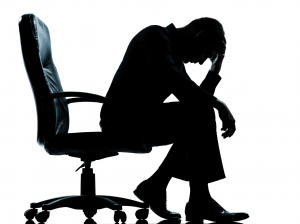Have you ever felt ashamed of something you’ve done to the point of blaming yourself and feeling so much guilt that you tend to hate yourself? Has it ever happened to you to feel so bad on your past events that you have done, which might have brought you pain or failure and caused harm to others? Haven’t you felt remorse for wrong things done to you or to others? All of this is normal, and everyone of us does mistakes. Read this to see how self-blame or a high sense of culpability mostly referred as guilt can affect our inner peace and overall well-being if we fail to forgive ourselves and let go what we cannot change.
Authors of undesired situations?
It happens that we find ourselves in undesired situations where we live moments of pains and wounds or failure. Our inability to connect the occurrence of these events as mere natural phenomenon where life is to be up and down brings us to find faults in our own lives and judge ourselves to be authors of these events. We tend to take our misfortune as our making, as our fault, and we tag ourselves as originators of the problem. In the course of this self-blaming, we carry this sort of culpability and refuse to forgive ourselves. The danger of this deadly feeling is that others may not know what is wrong with us but can be victims of our attitudes because in most cases, we embark on societal withdrawal and self-exclusion as we judge ourselves as unworthy persons.
Putting ourselves aside
As stated above, when we categorize ourselves and tag ourselves as originators of our misfortune, pain or suffering, there is a certain behaviour that we develop and that can affect our mind: societal exclusion where we withdraw from public and put ourselves aside. It is a failure to undertake another action as we see ourselves as non-capable or afraid to fall into similar situation.
Culpability and guilt may not be bad in themselves if we decide to accept the world as it is, carry on with life and transcend our past to do better. The danger is that we carry these sentiments over years, and we live in our own world outside of which, any other thing looks bad. We build a strong shell around us and isolate ourselves as we may feel like being the problem for ourselves and for others. In the following text, there are some questions to help understand more why we feel guilt and self-blame.

1. Why do we feel so much guilt and self-blame in some cases?
Because we take responsibility over things that are not ours. Because we fail to accept what we cannot change. Because we have developed a low self-esteem sentiment, and we fail to forgive to ourselves. Because we think our pain and failure are from our own making and we feel ashamed of that.
2. Why self-blame and culpability (too much guilt) is dangerous?
It is dangerous because one can decide to punish him or herself: when the feeling of shame is too high, when one blames himself or herself too much, there is a tendency to seek to punish ourselves. When it goes to the extreme, issues of suicide lingers in our mind as we tend to see our life worthless. Punishing ourselves may take many forms and according to literature reviewed, most of these are self-immolation, infringing pain on oneself, denying ourselves what we should have the right to have, taking drugs such as alcohol, smoking and finding refuge in short term stress relieving substances such as intoxicants. All these damage our mind and body.
3. How does self-blame affect our mind?
It is said that guilt is what we do, and shame – who we are. When we blame ourselves too much and when it becomes like a way of life, we put an end to creativity, to any action geared towards development, or any move that makes life progressing in a positive direction. Our mind will never be at peace, will hardly concentrate and focus because reminiscence of past events will prevent us to let go and carry on with life. Whatever keeps us back is not good for our mind that needs to surpass a past to live in the present.
4. Any suggestions to get out of this deadly feeling?
Introspection in one’s life to identify where lies the loopholes to amend it and correct what appears to be wrong is the act number one. Specific therapy should be applied to each life situations as causes of our issues are different but we have one common engine that determine our actions. That is the mind. If the mind is taken care of and made to be clean and pure, still and less clouded by the past events, pains we feel, wounds we carry within, feelings we don’t let go, bad attitudes we do not abandon, we may always have this problem. We are to train the mind not to bother about what we cannot change. I learned this when I started meditating some years back. This tool which brings about mind’s relaxation an concentration can make one’s life look more beautiful and fruitful, positive and progressive.


